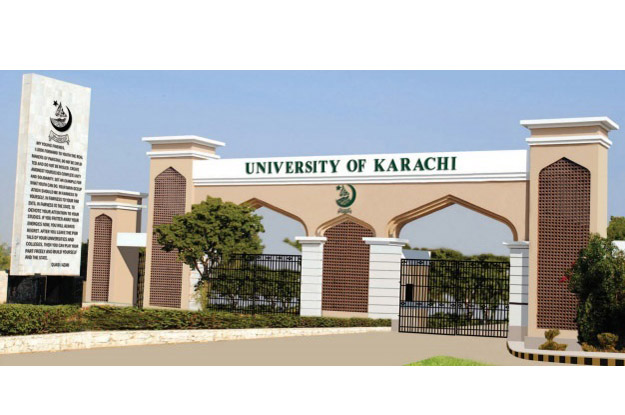
Students, teachers and civil society members gathered at the centre to pay tribute to the man, whose name and picture now adorn the wall of the centre. Chairperson of KU's department of general history, Prof Dr Syed Muhammad Taha said that every month a lecture or interactive session would be held in the newly-inaugurated space.
New dept set up at KU with aid worth $1.9m
Dr Islam, who was one of the founders and a lifetime secretary of KU's Institute of Central and West Asian Studies, was praised for his services and research work in the field of history. He was also Pakistan's first professor emeritus and one of the founding members of Pakistan Historical Society.
Dean of the faculty of social sciences, Prof Dr Moonis Ahmer, spoke about the "beauty of historians" and their writing and said much of the beauty depends on how unbiased the historian is. The varsity's vice-chancellor, Prof Dr Muhammad Qaiser, claimed that history could never be distorted if historians were unbiased. Dr Islam, according to him, was one such unbiased historian. "His research is completely free from bias," he said.
Applauding Dr Islam's research skills, Dr Taha said that his research was such that it could still be applied and was very impactful.
Director of the Pakistan Study Centre, Prof Dr Syed Jaffer Ahmed, said writing history of medieval India and South Asia without knowing Persian is very difficult. Dr Islam, according to him, could not only understand Farsi but could also decipher the Persian of the medieval ages, which is very different from its modern form.
After the death of Dr Islam in 2007, Ahmed said that when they explored his library, the material they found there could not be found anywhere else. He said that Dr Islam was given an area behind the Arts Lobby, where sacks used to be dumped, to keep his books. After his death, it took them seven years to collect his research material.
For a better future: Dr Yasir Radio Lab inaugurated at FUUAST
Speaking about how Dr Islam used to run the Institute of Central and West Asian Studies, Dr Ahmed said that initially the institute received a Rs5,000 grant, which was terminated during his lifetime. After that the Hamdard Foundation Pakistan used to give a Rs100,000 grant, which was stopped around three years ago. Now, according to him, the institute is being run on a grant of Rs 40,000 from KU and on interest from two bond certificates of Rs17,000 and Rs60,000, both of which belong to the institute.
Dr Qaiser on the occasion announced to increase KU's grant to Rs200,000 and stressed that it was still too little to run an institute like the Institute of Central and West Asian Studies.
Former VC of KU and current VC of Ziauddin University, Prof Dr Pirzada Qasim Raza Siddiqui claimed that Dr Islam persued knowledge from a very early age and his way of thinking and analyzing was different from that of his peers.
He said said Dr Islam was one of the few people who refused to take up the position of VC, despite being offered. He also related an incident when he nominated Dr Islam for a Hilal-e-Imtiaz award but Dr Islam was only awarded the Sitara-e-Imtiaz. Dr Siddiqui said he was angry and wanted to write to the government a complaint but Dr Islam stopped him from doing so and said that these were the matters of the government.
Published in The Express Tribune, February 25th, 2016.















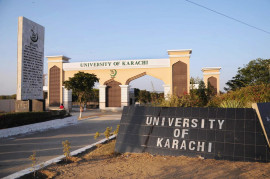
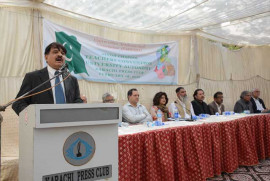
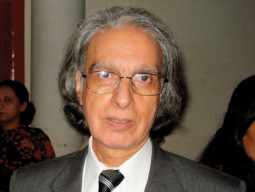

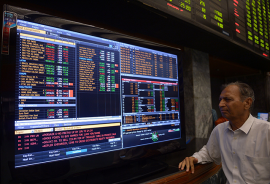


















COMMENTS
Comments are moderated and generally will be posted if they are on-topic and not abusive.
For more information, please see our Comments FAQ